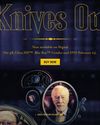Intentar ORO - Gratis
Efficient Competitor Analysis Studies
NET
|September 2019
Vamsi Batchu examines the benefits of performing competitive analysis and reveals a step-by-step process for analysis study
-

Generally whenever a product is being developed by a company, one of the most important aspects to deal with early on is to understand the generic landscape where the product will compete. This can be achieved by performing a competitive analysis study. This also helps the business to compare the product’s unique features against the competition in the market, identify potential user types/personas and, most importantly, gain a view on their visual language styles.
Let’s look at a few advantages of the analysis when it comes to the design aspect:
Helps the design teams to identify and solve common usability issues.
Informs the design process of the products out there in the market.
Helps provide concrete evidence to make product-based changes.
Focuses the business efforts on a target segment.
One thing to understand is that the analysis will inform about what is existing currently but not why it is existing. But this analysis itself is enough to understand a lot of insights and boost the brand value. Here is how it is done.
1. UNDERSTAND THE ANALYSIS GOALS
The first step of the analysis is listing out the goals of performing the research/study of the competitors. Questions such as the research impact on the product design should be asked with the stakeholders before starting. Make sure that your goals are as specific as possible and all the goals that are laid out must be accessible in the future.
This enables you to consider the loopholes the business is planning to address with the study. Make a list of the goals and add them to the product map so that they can be referred to whenever there is a misalignment. A few examples of the goals could be:
Understanding the pricing strategy of the competitor products.
Determining what social media channels are being used by the users in the platform.
2. TARGET YOUR ANALYSIS
Esta historia es de la edición September 2019 de NET.
Suscríbete a Magzter GOLD para acceder a miles de historias premium seleccionadas y a más de 9000 revistas y periódicos.
¿Ya eres suscriptor? Iniciar sesión
MÁS HISTORIAS DE NET

NET
Camille Gribbons
UX designer at Booking.com, Camille Gribbons reveals how she first got into the industry
7 mins
June 2020

NET
THE 5G UI REVOLUTION
Tris Tolliday describes his vision of a web UI catapulted forwards by 5G
3 mins
June 2020

NET
HOW TO SHOWCASE YOUR DEV SKILLS
Aude Barral shares 5 top tips for landing your dream developer job
3 mins
June 2020

NET
KNIVES OUT
Murder mystery film, Knives Out, grabbed everyone’s attention, and so did the fun website that promoted it. Oblio tells Tom May how it created its innovative 3D navigation
6 mins
June 2020

NET
HOW EMOTIONAL LABOUR HINDERS WOMEN IN TECH
Christine Brewis, head of digital marketing at Studio Graphene, discusses how gender parity in tech has changed over the last ten years, and what more can be done
5 mins
June 2020

NET
EDAN KWAN
He swapped life as a singer for a career making eye-popping digital visuals. The Lusion founder chats to Tom May about battling demons, winning awards and where digital advertising is heading
8 mins
June 2020

NET
ANDREW COULDWELL
The Brit in LA discusses his new book on design systems, Laying the Foundations
3 mins
June 2020

NET
Top 5 Tips For Ensuring Web Content Is Accessible For All
Merlyn Meredith outlines five top tips for ensuring web content is accessible for all
2 mins
May 2020

NET
WHAT DOES THE FUTURE HOLD FOR BROWSERS?
Nico Turco examines the state of play with browsers, whether developers should encourage diversity or monopoly and how Google fits into it all
6 mins
May 2020

NET
YEARS IN THE MAKING
Exclusively for net: The latest in a series of anonymous accounts of nightmare clients
3 mins
May 2020
Translate
Change font size
